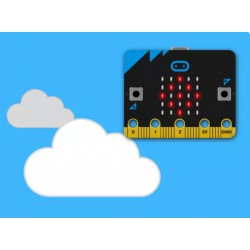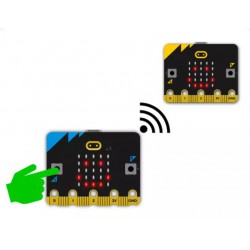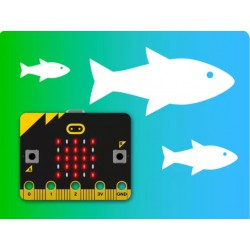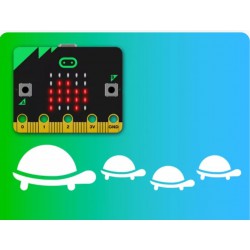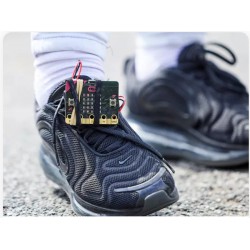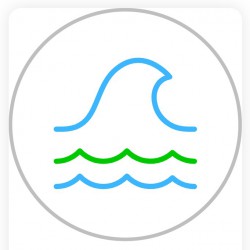Sort
do your :bit There are 14 items.
Use these activities as inspiration for the do your :bit challenge! This challenge welcomes anyone ages 8-18 to use their creativity and micro:bit technology to come up with solutions to make the world a better place. Learn more
about how to enter the challenge to win a prize.
-
Calming LEDs
Turn your micro:bit into a simple digital device to help you relax by slowing and regulating your breathing using a simple animation sequence. 0
Check It Out
How-to Video -
Send a Smile
Sharing and receiving kindness is a good way to support your well-being and that of your friends. Create a program using radio to send a smile from one micro:bit to another to support a friend. 0
Check It Out
How-to Video -
Light-up Fishing Nets
Use your micro:bit to create a prototype of LED lights that can stop unwanted fish, turtles, and birds from getting trapped in fishing nets. 0
Check It Out
How-to Video -
Animal Tracker
Use the micro:bit's accelerometer and radio features to make a prototype of a device to help scientists track polar bears or other animals and discover how they are being affected by climate change. 0
Check It Out
How-to Video -
Saving Sea Turtles
Newly-hatched sea turtles use moonlight to find their way to the sea. Tall, bright lights can confuse them. Build a prototype of beach lighting for paths that guides humans safely but doesn't distract turtles. 0
Check It Out
How-to Video -
Step Counter
Turn your micro:bit into a step counter (or pedometer) to help you track how active you are - and learn some coding at the same time! 0
Check It Out
How-to Video -
Saving Sea Creatures
This lesson comes with two activities about wildlife! Patrons use a BBC micro:bit to create a species counter and an anti-poaching collar. 0
Check It Out
-
Protecting Animals on Land
This lesson comes with two activities about wildlife! Patrons use a BBC micro:bit to create a species counter and an anti-poaching collar. 0
Check It Out
-
Night Safety
This suite of three activities considers how technology can be used to help children to "Be Safe: Be Seen!" Patrons use a BBC micro:bit to create light-up devices to be safe at night. 0
Check It Out
-
Healthy Oceans
These two advanced activities explore how wireless sensors are used to monitor the environment at sea. Patrons use a BBC micro:bit to design an algorithm to clean oil spills in the sea and create autonomous vehicles that can mop up oil spills. 0
Check It Out
-
Helping Plants Grow
These two advanced activities use the radio and moisture sensors on the BBC micro:bit to protect trees from being cut down and to prototype an automated farming system. 0
Check It Out



